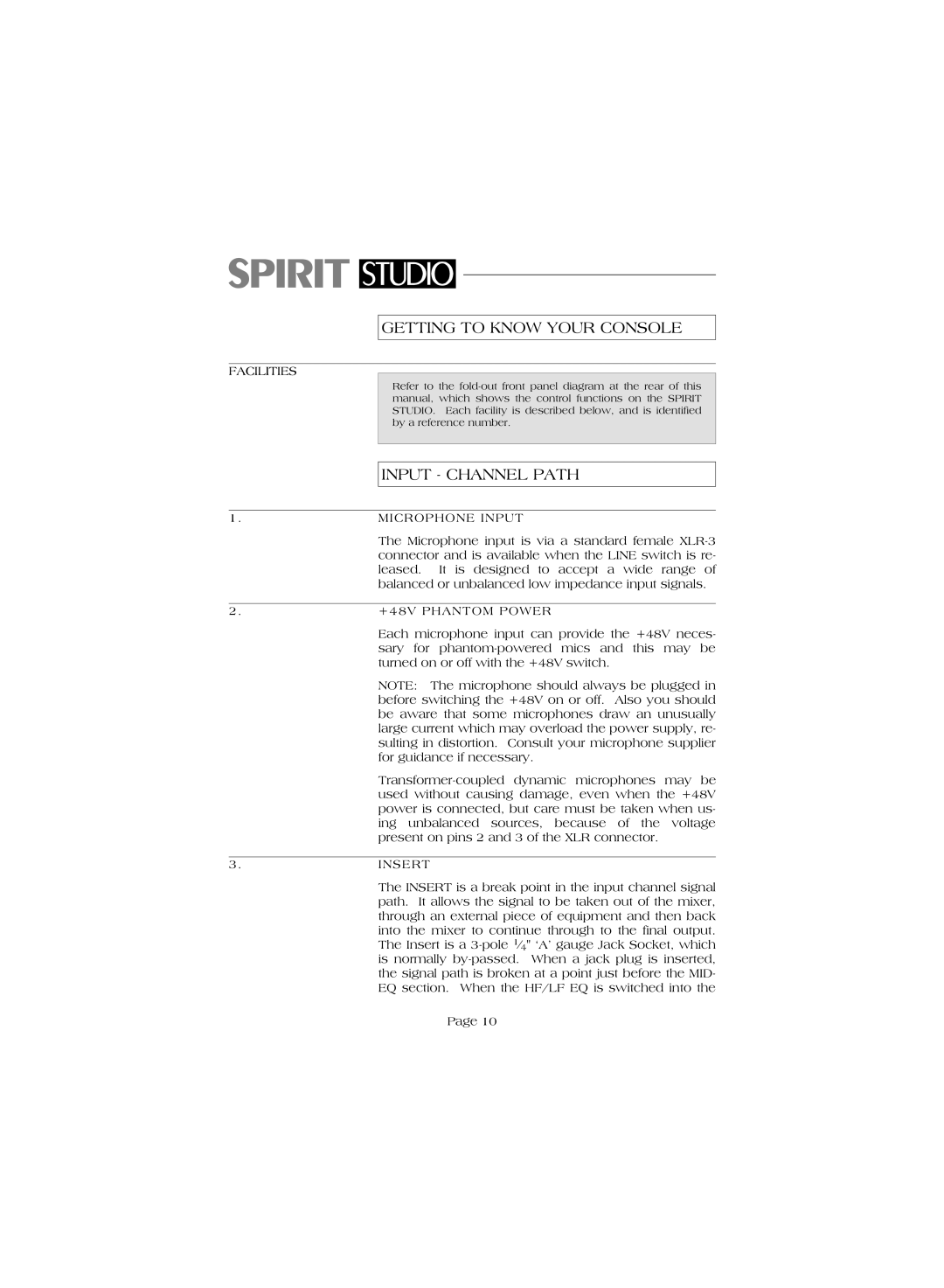
GETTING TO KNOW YOUR CONSOLE
FACILITIES
Refer to the
INPUT - CHANNEL PATH
1. | MICROPHONE INPUT |
| The Microphone input is via a standard female |
| connector and is available when the LINE switch is re- |
| leased. It is designed to accept a wide range of |
| balanced or unbalanced low impedance input signals. |
|
|
2. | +48V PHANTOM POWER |
| Each microphone input can provide the +48V neces- |
| sary for |
| turned on or off with the +48V switch. |
| NOTE: The microphone should always be plugged in |
| before switching the +48V on or off. Also you should |
| be aware that some microphones draw an unusually |
| large current which may overload the power supply, re- |
| sulting in distortion. Consult your microphone supplier |
| for guidance if necessary. |
| |
| used without causing damage, even when the +48V |
| power is connected, but care must be taken when us- |
| ing unbalanced sources, because of the voltage |
| present on pins 2 and 3 of the XLR connector. |
|
|
3. | INSERT |
| The INSERT is a break point in the input channel signal |
| path. It allows the signal to be taken out of the mixer, |
through an external piece of equipment and then back into the mixer to continue through to the final output. The Insert is a
Page 10
